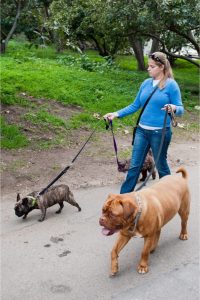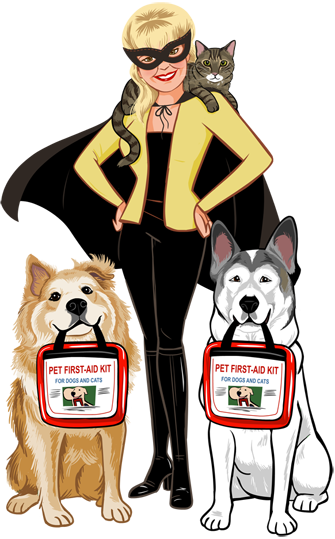
Pets ARE part of the family and they can improve your human family members’ health! Zooeyia (ZOO-ey-ah), a relatively new word describes the health benefits pets give back to us humans. The word comes from the Greek root word zoion (animal) and from the Greek Goddess of Health, Hygeia. It is the inverse of zoonoses, the study of diseases we can get from animals (rabies, giardia and lyme disease for instance). If you share your life with a pet, this should come as no surprise, but there is now scientific proof that including pets in the family unit can actually improve wellness.
Zoonotic diseases affect both humans and animals and can spread from animals (via ticks, bites & scratches) to humans, and from humans to animals (birds can catch our common cold for instance). Sixty-one percent of the infectious diseases affecting humans are zoonotic! The increasing number and significance of zoonotic diseases emerging worldwide are due to multiple converging factors: climate change, increasing urbanization, human encroachment into wilderness areas, increased global travel and, for companion animals, increasing closeness with humans (Yay! They are part of the family!)
Now to turn that around… In Dr. Andrew Weil’s book, Spontaneous Happiness, he includes a chapter entitled “Relate to Companion Animals” and writes about the gift of spontaneous happiness and emotional health that comes from relationships with pets. Dog ownership decreases the risk of developing a cold or asthma, and having a pet in the home results in healthier kids, but there are other important health issues recently identified by the Institute of Medicine of the National Academies.

Besides helping us develop stronger immune systems, lowering our stress and blood pressure…
- Pets get us moving. Humans of all ages with dogs in the family exercise more than those who do not share their life with a pet as the dog’s need for walks gets us up and moving too. When we don’t move, obesity and diabetes can reach epidemic portions in both children and adults. Physical activity also supports mental acuity. Studies show that humans who had walked over 72 blocks per week had a greater volume of grey matter 9 years later!
- Pets lower the impact of chronic disease. Studies have shown cats decrease the risk of cardiovascular disease in their owners and dogs provide comfort and support to cancer patients. Animals also help in the treatment of Post-Traumatic Stress Disorder, and dogs who suffer from PTSD as well may benefit from helping a human.
- Pets help kids. It has been shown that children who bond with a pet grow up to be more empathetic adults. They also often develop stronger immune systems and many develop a stronger sense of responsibility for caring for another species.
- Pets help us ‘kick the habit.’ Knowing secondhand smoke can harm our pets has motivated some smokers to quit! Inhaling secondhand smoke is a widely recognized risk factor for many diseases, including cancer as well as cardiovascular and respiratory diseases.
- Pets make us more social. Loneliness and isolation occur in our increasingly urbanized lifestyles, especially among the elderly. Having a pet gets people out meeting people (dogs can be ‘babe magnets’), taking part in activities with other pet parents, heading to parks, hiking and just staying in touch with the world. Caring for a pet gives many a reason to get up each morning!
For all your pet — your best friend, companion, therapist, fellow adventurer, keeper of secrets — does for you, resolve to be the best pet parent you can be, and appreciate the heck out of the privilege of having a pet in your life!

WATCH MY VIDEO BLOG ON THIS TOPIC HERE https://youtu.be/FLauYKICOdA
For 20 years Denise Fleck’s Sunny-dog Ink motto has been “Helping people to help their pets,” and she has…teaching more than 15,000 pet lovers animal life-saving skills and millions more on “The Doctors,” CNN, “Kirstie Alley’s Big Life,” Animal Planet and other TV shows. Denise is a frequent conference speaker, developed a line of pet first aid kits and now offers classes online.
Note: The articles on this page are copyrighted. Please do not reprint or use portions for any purpose without written permission from the author. Request permission for usage by sending an email explaining how you’d like to use the materials and what parts specifically. Thank you in advance!









